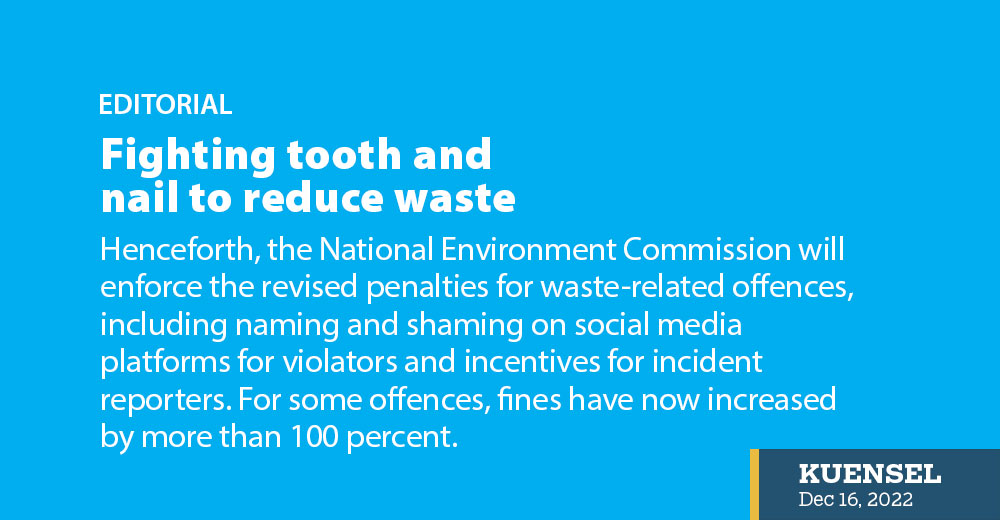Henceforth, the National Environment Commission will enforce the revised penalties for waste-related offences, including naming and shaming on social media platforms for violators and incentives for incident reporters. For some offences, fines have now increased by more than 100 percent.
Waste is a growing problem in the country. Poor waste management is giving rise to many related challenges in our society. Therefore, this new initiative and penalties are welcome. When the fines are heavy, people will be more careful. But much will depend on implementation. If the fines are not imposed strictly and uniformly, we might then have one more waste issue to clean.
For dumping or releasing wastes in the environment, the Nu 500 for the first offence has now been raised to Nu 5,000. The penalty for the second offence is Nu 10,000 and Nu 15,000 for the third offence.
Also, individuals who provide false information or distorted information will be fined Nu 5,000 for the first offence. Construction companies or units failing to prevent spillage of any waste, including construction materials and excavated soil during transportation will henceforth be fined Nu 10,000. Individuals or companies failing to provide three colour-coded waste storage facilities or bins at construction sites will have to pay Nu 5,000. And, likewise, individuals who fail to cooperate with officers on duty will be fined Nu 5,000 for the first offence.
But what is interesting and probably more sensible is that offenders will be named and shamed. Although some might argue that this going too far, the measure is appropriate going by the way waste is becoming a concern in society.
Tackled with resolve, the issue of growing waste can be addressed effectively and efficiently. The current Plan period has given special emphasis to waste management. The overall objective of achieving “Zero Waste Bhutan” is doable. We must begin with source segregation, downstream waste collection facilities and drop-off centres at convenient locations and efficient and timely collection of waste, among others.
Effecting change requires instilling and nurturing new culture. If nothing works, hefty fines should make our people think twice before they go on about disposing of waste mindlessly. Bhutan is known as one of the most environment-conscious countries in the world. We must live up to such encouraging recognition.


